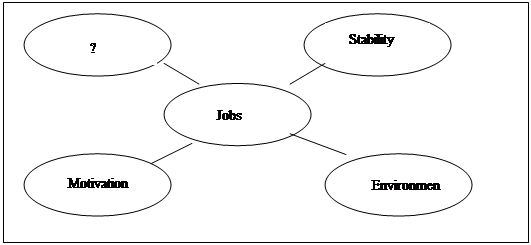题目内容
Most people think that the older you get, the harder it is to learn a new language. That is, they believe that children learn more easily and efficiently than adults. Thus, at some point in our lives, maybe around age 12 or 13, we lose the ability to learn languages well. Is this idea a fact or myth(悬念)?
Is it true that children learn a foreign language more efficiently than adults? On the contrary, research studies suggest that the opposite may be true. One report, on 2,000 Danish children studying Swedish, concluded that the teenagers learned more, in less time, than the younger children. Another report, on Americans learning Russian, showed a direct improvement of ability over the age range tested; that is, the ability to learn increased as the age increased, from childhood to adulthood.
There are several possible explanations for these findings. For one thing, adults know more about the world and therefore are able to understand meanings more easily than children. Moreover, adults can use logical(逻辑的) thinking to help themselves see patterns in the language. Finally, adults have more self-discipline (self-control) than children.
All in all, it seems that the common idea that children are better language learners than adults may not be a fact, but a myth.
68. The main idea of the passage is ____.
A. teenagers are more difficult to teach
B. Danish teenagers can learn Swedish faster than younger children
C. adults are more logical than children
D. the ability to learn languages increases with age
69. According to the passage, teenagers can learn a foreign language _____ than younger children.
A. harder B. more efficiently
C. more slowly D. more carefully
70. Which of the following possible explanations for older student’s better achievement is not mentioned in the above passage?
A. Adults know more about the world. B. Adults can use logical thinking
C. Adults have more self-discipline. D. Adults can read better.
DBD

Taiwan will finalize a plan by the end of June to open up the island to tourists from mainland China, though no date has been fixed for formal implementation(执行), an official at the Mainland Affairs Council(MAC)said on Monday.
The official said the reports in the local press on Monday that the MAC has dec ided to postpone its plan to announce the implementation of the new plan on July 1 were inaccurate.
ided to postpone its plan to announce the implementation of the new plan on July 1 were inaccurate.
The official said cooperation between different organizations was still underway.The United Daily news quoted the director of the MAC’s legal affairs department, Liu Thehsun, as saying the plan to open up to mainland tourists would not be implemented as scheduled due to a lack of cross-strait communication.
Although relevant authorities, including the Bureau of Immigration and the Tourism Bureau, have complete reports on how to deal with visitors from mainland China, the decision has been taken not to press, ahead with announcement of the plan’s implementation on the first of July, Liu was quoted as saying.
The report also said that while no restrictions would be imposed on the mainland visitors in terms of age or residence in China, the visitors would need to hold a steady job or have more than 50,000RMB(about 6,000, U.S.dollars)in bank savings before they would be eligible(有资格的)to visit Taiwan.
In addition, Taiwan bound mainland tourists would have to come as part of a tour group and would be allowed to stay a maximum of 10 days each time.
The number of mainland tourists allowed to enter the island would also initially be limited to 1,000 people a day.
Although most people from Taiwan are free to travel to China, only a small number of mainland Chinese have been able to visit the island due to restrictions imposed by both sides of the Taiwan Strait after the end of a civil war in 1949.
【小题1】At the moment, according to the passage, ___________.
| A.no mainland Chinese can visit Taiwan now |
| B.any mainland Chinese can visit Taiwan now |
| C.many mainland Chinese have ever visited Taiwan since 1949 |
| D.a few mainland Chinese have ever visited Taiwan since 1949 |
A.there will be no restr ictions to mainland visitors ictions to mainland visitors |
| B.mainland visitors who want to travel in Taiwan must have at least ¥50,000 in the bank savings account |
| C.there will be no age restrictions to the mainland visitors |
| D.mainland visitors will be free to travel to Taiwan |
| A.MAC | B.United Daily |
| C.several organizations | D.Bureau of Immigration |
| A.The implementation of the plan has not been fixed. |
| B.It was originally fixed on July 1 to announce the plan’s implementation. |
| C.For lack of cross-strait communication, the plan will not be officially completed until July. |
| D.When the plan is finalized, it will be announced immediately. |
 it but later found it made you feel very uncomfortable over time? When you select your career, there’s whole lot more to it than assessing your skills and matching them with a particular position. If you ignore your personality, it will hurt you long-term regardless of your skills or the job's pay. There are several areas of your personality that you need to consider to help you find a good job. Here are a few of those main areas:
it but later found it made you feel very uncomfortable over time? When you select your career, there’s whole lot more to it than assessing your skills and matching them with a particular position. If you ignore your personality, it will hurt you long-term regardless of your skills or the job's pay. There are several areas of your personality that you need to consider to help you find a good job. Here are a few of those main areas: 